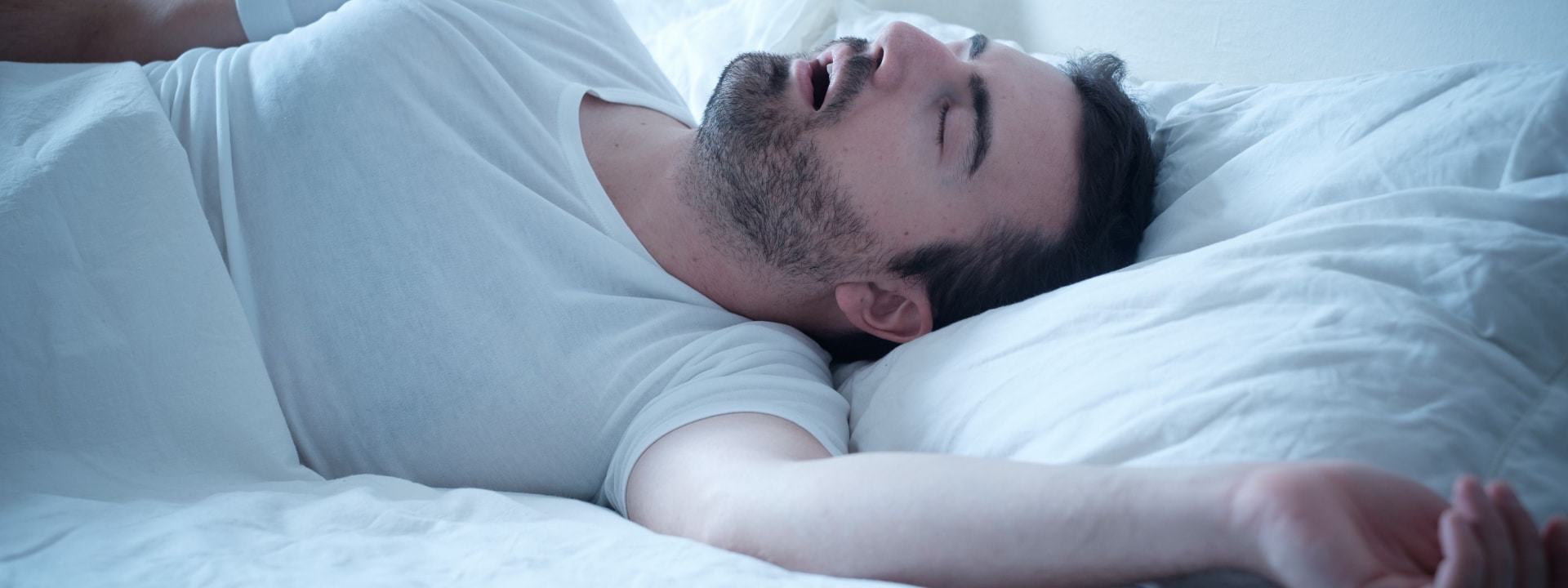Take the FREE Sleep Apnoea test today GET STARTED
What is Sleep Apnoea?
Sleep Apnoea is a sleeping disorder that you might not even realise you are suffering from, usually your partner will be more aware of it than you are. The problem itself is a disrupted breathing pattern during sleep caused by a closing of the upper airways of your lungs when you relax and a period of time when your body stops breathing. This results in you losing a few breathes, lasting a period of around ten to twenty seconds (each occasion is referred to as an apnoea). Sometimes this might wake you up but more often than not you will simply resume breathing normally again without being aware of the disruption and without realising that you have woken up for a few seconds and that your sleep has been disrupted. Mild sleep apnoea is when between 5 and 15 episodes of apnoea occur within an hour, moderate between 15 to 30 and severe sleep apnoea is anything above this.
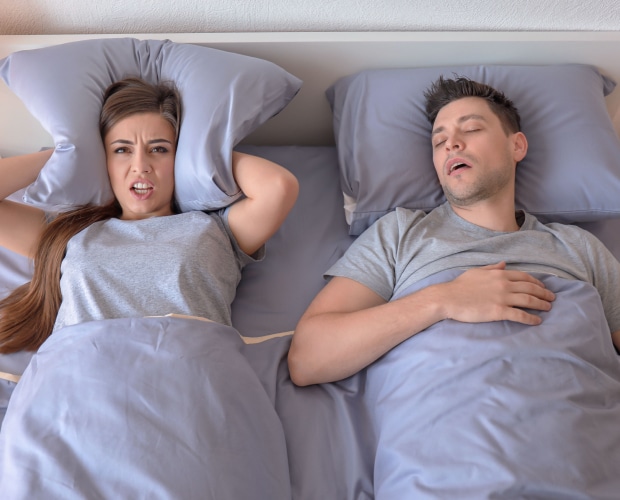
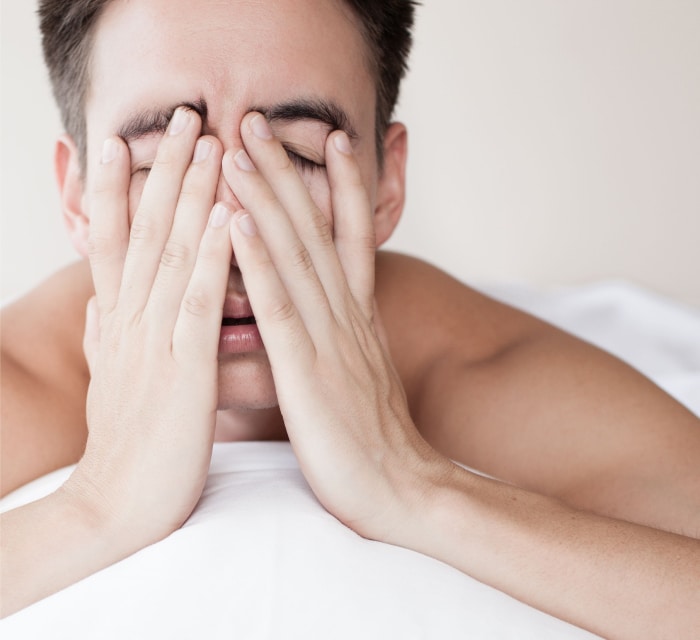
Who suffers from Sleep Apnoea?
Sleep Apnoea affects 1-4% of the population, usually these are men over 40 years of age with a sedentary job, for example driving or office work. Women are half as likely to have/suffer from sleep apnoea until they go through the menopause, when they start to suffer as much as men.
Those who are overweight are the most at risk of developing sleep apnoea and about 2/3rd of patients with the condition are overweight. This is partly because the extra weight upon the neck pushes down and closes the throat whilst asleep. It is no surprise that most people who suffer from sleep apnoea have a larger than normal neck.
Sleep apnoea can be seen in about 3% children, but the normal reason for this occurring is enlarged tonsils, easily treatable by having them removed.
How is Sleep Apnoea treated?
At the Sleeping Disorders Centre you will undergo a series of tests and assessments before the most suitable form of treatment is recommended.

Changing your Lifestyle
Once you have been diagnosed, Mr Oko and his team can take a number of steps to change your lifestyle in order to help prevent sleep apnoea
Sometimes simple lifestyle changes will not help with your sleep apnoea and further measures will need to be taken.
CPAP – Continuous Airway Pressure
If you suffer from moderate or severe sleep apnoea and you do not respond to lifestyle changes then you might be recommended a CPAP machine while you sleep.
This is a mask attached to a machine that helps you to breathe at night by providing a steady supply of air. The air is at a slightly higher pressure than normal, which enables your throat to remain clear. This may seem an odd solution, having to be worn every night continuously, however if you persevere with it the CPAP machine can improve your sleeping immediately and have a huge impact on your waking life. This is the safest and most tried and tested solution to sleep apnoea and recommended by NICE (National Institute of Clinical Excellence).
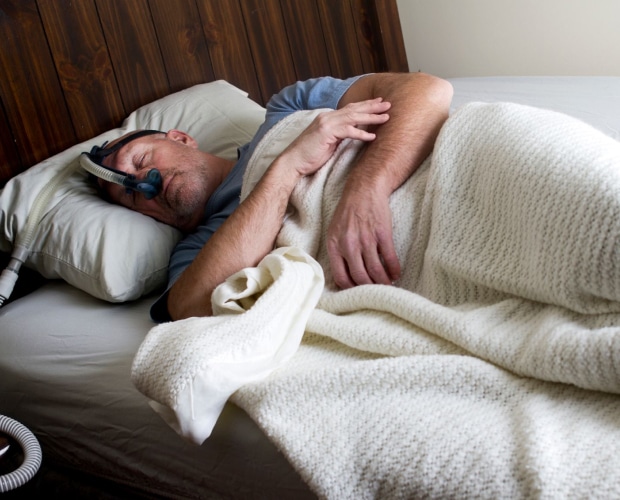
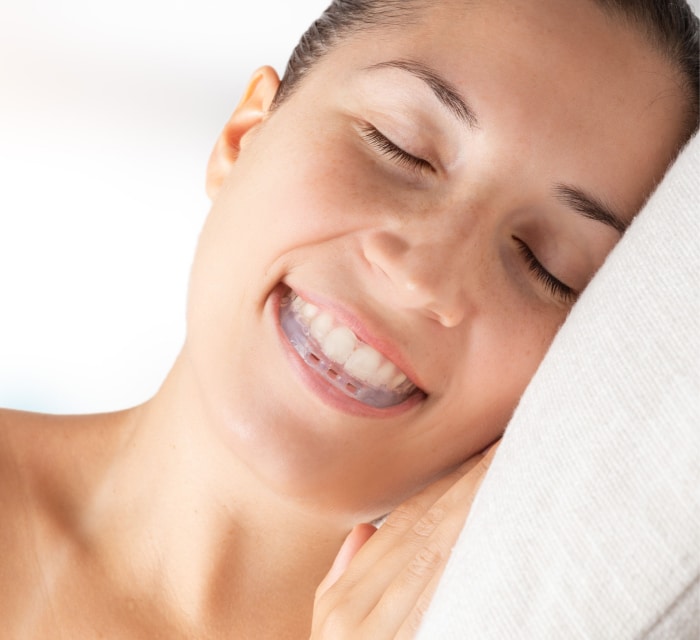
Mandibular Advancement Devices
Some types of obstructive sleep apnoea is caused by the lower jaw being too far back. In order to rectify this, a specially made device can be used to pull your jaw forward enabling your airway to be clearer throughout your sleep. A mandibular device is usually used for those who have mild to moderate cases of sleep apnoea, or those who can’t sleep using a CPAP device.
Surgery for Sleep Apnoea
Surgery is not usually a first option for helping Obstructive Sleep Apnoea sufferers and in Mr Oko’s practice only about 11% of all patients have surgery. However in some cases, especially children, the cause for Obstructive Sleep Apnoea might be enlarged tonsils or adenoids. Removing them, therefore, removes the problem. For further information read Mr Oko’s Guide to Sleep Apnoea
